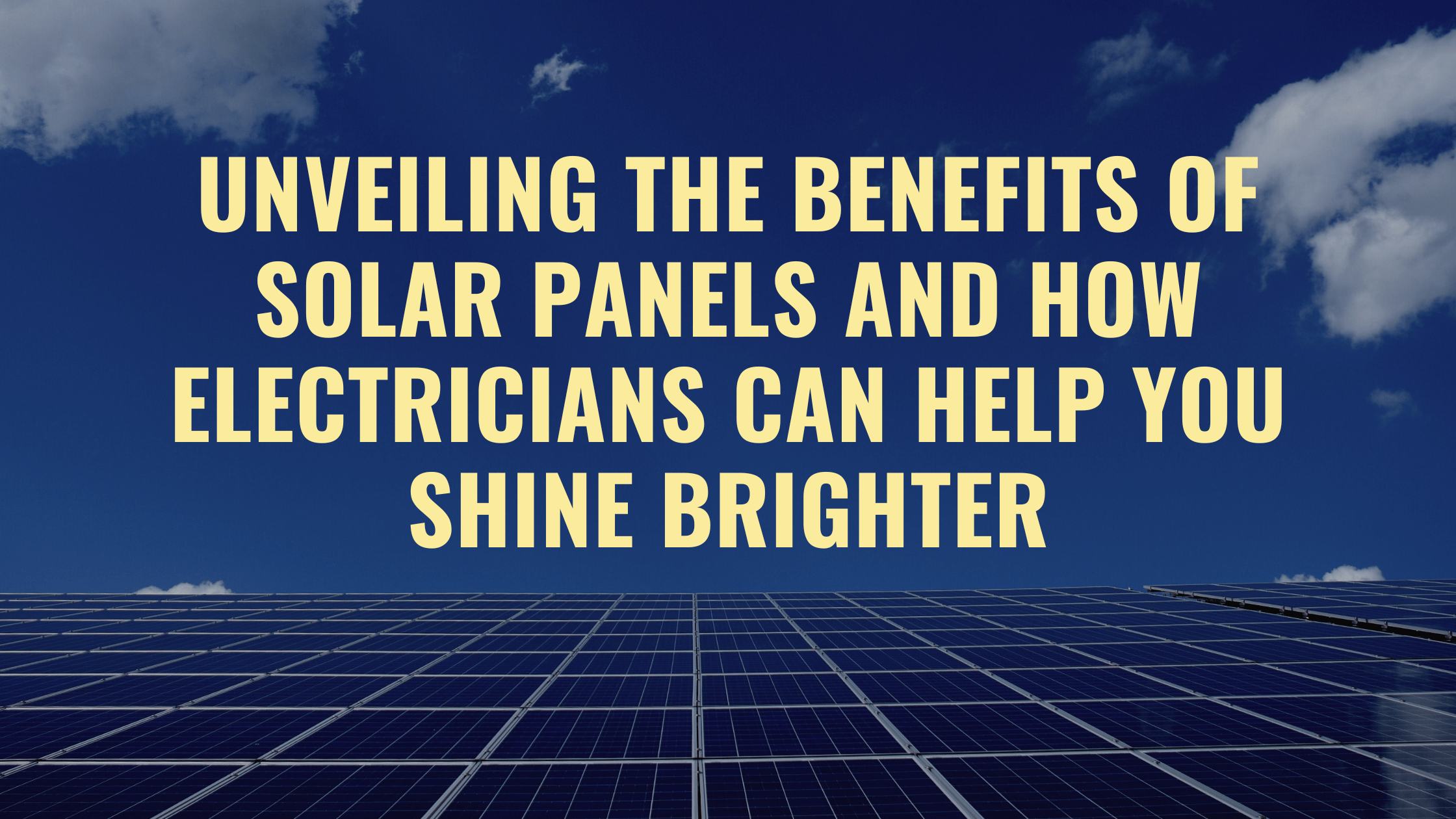Exactly How Solar Energy Can Help You Save Money and Lower Your Carbon Impact
The assimilation of solar power into your power portfolio provides an engaging opportunity for both monetary cost savings and ecological stewardship. As various federal government motivations become offered, the question occurs: how can one properly browse the preliminary financial investments and ongoing benefits of solar innovation to make the most of both economic and environmental gains?
Understanding Solar Energy Cost Savings
While the shift to solar power typically includes a first financial investment, recognizing solar energy cost savings is important for house owners and organizations alike. Solar energy systems can substantially reduce electrical power expenses by utilizing the sunlight's power, translating into significant long-lasting monetary benefits. By generating their very own power, individuals reduce reliance on grid power, which goes through fluctuating prices. These cost savings can accumulate with time, often leading to a quick roi.
In addition, solar energy systems may receive various financial motivations, consisting of tax obligation credit histories and rebates, even more improving their cost-effectiveness. The schedule of internet metering enables individuals to sell excess power back to the grid, producing an additional income stream. These aspects add to the total savings linked with solar power.

In enhancement to route financial savings, solar power offers the added benefit of increasing home worth. Residences furnished with photovoltaic panels are frequently more appealing to customers, as they promise lower energy expenses - Simply Solar Illinois. Understanding these aspects is important for anyone thinking about solar energy, as it highlights not simply the potential monetary gains, however also the wider environmental and financial benefits of adopting renewable resource remedies
Initial Costs vs. Long-Term Benefits
When assessing solar power, it is necessary to evaluate the preliminary prices versus the lasting benefits. The ahead of time financial investment for solar panels, setup, and related tools can be substantial, typically varying from $15,000 to $30,000, relying on the system dimension and home power demands. This preliminary expenditure may hinder some homeowners; however, it is critical to consider the potential cost savings over time.
Once set up, solar energy systems can significantly minimize and even eliminate regular monthly power costs, causing considerable long-term monetary benefits. Research studies show that homeowners can conserve anywhere from $10,000 to $30,000 over the lifespan of their planetary system, generally 25 years. In addition, many states supply incentives, tax obligation credit ratings, and discounts that can counter initial expenses, making solar much more accessible.

Reducing Your Carbon Footprint
Lowering your carbon footprint is an important consideration in today's ecologically conscious culture, and adopting solar power is one of one of the most efficient strategies click to find out more to achieve this objective. Solar power is a clean, eco-friendly resource that dramatically reduces reliance on fossil fuels, which are major factors to greenhouse gas emissions.

Additionally, the extensive adoption of solar modern technology motivates the growth of eco-friendly work and supports advancements in power storage and effectiveness. The even more individuals and companies invest in solar power, the higher the collective reduction in carbon exhausts, cultivating a cleaner ambience for future generations.
Federal Government Motivations and Discounts
Embracing solar power not just profits the atmosphere but can additionally cause substantial economic cost savings, particularly with the availability of federal government incentives you could try these out and refunds. Different government, state, and neighborhood programs are developed to motivate home owners and services to purchase solar power systems, making the change a lot more budget friendly.
Among one of the most prominent motivations is the Federal Investment Tax Credit Rating (ITC), which allows solar system owners to deduct a substantial percentage of the setup costs from their government tax obligations. This reward has been critical in decreasing the ahead of time expenses related to solar energy systems. Additionally, several states provide their own tax credit histories, gives, and rebates that can further improve savings.
Furthermore, some neighborhood governments supply real estate tax exceptions for solar setups, making certain that property owners do not encounter raised real estate tax as a result of their renewable resource financial investments. Utility firms may likewise provide incentives, consisting of internet metering and feed-in tariffs, which allow solar power customers to market excess power this link back to the grid.
Choosing the Right Planetary System
Picking the ideal solar system is important for optimizing power efficiency and economic advantages. The decision rests on numerous factors, consisting of energy requirements, budget, and available space. Homeowners must begin by assessing their electrical power usage to figure out the system size needed for ideal efficiency.
Next, consider the various sorts of solar innovations readily available. Simply Solar Illinois. Solar (PV) panels are the most usual, converting sunlight straight right into electrical energy, while solar thermal systems concentrate on heating water. Each kind has distinctive advantages depending on individual demands
Budget considerations are also vital. Initial setup expenses can differ significantly, so it is very important to contrast quotes from numerous companies and discover financing options. Federal government rewards and rebates can even more lower the financial worry, making solar systems extra easily accessible.
Final Thought
In summary, solar energy provides a practical option for accomplishing considerable price savings while simultaneously decreasing carbon exhausts. The first investment, though considerable, yields substantial long-term financial benefits, with prospective cost savings ranging from $10,000 to $30,000 over 25 years. Moreover, the environmental advantages of solar energy contribute to sustainable methods critical for combating environment adjustment. Government rewards boost the feasibility of solar innovation fostering, encouraging a shift in the direction of a cleaner, a lot more financially reliable energy resource.